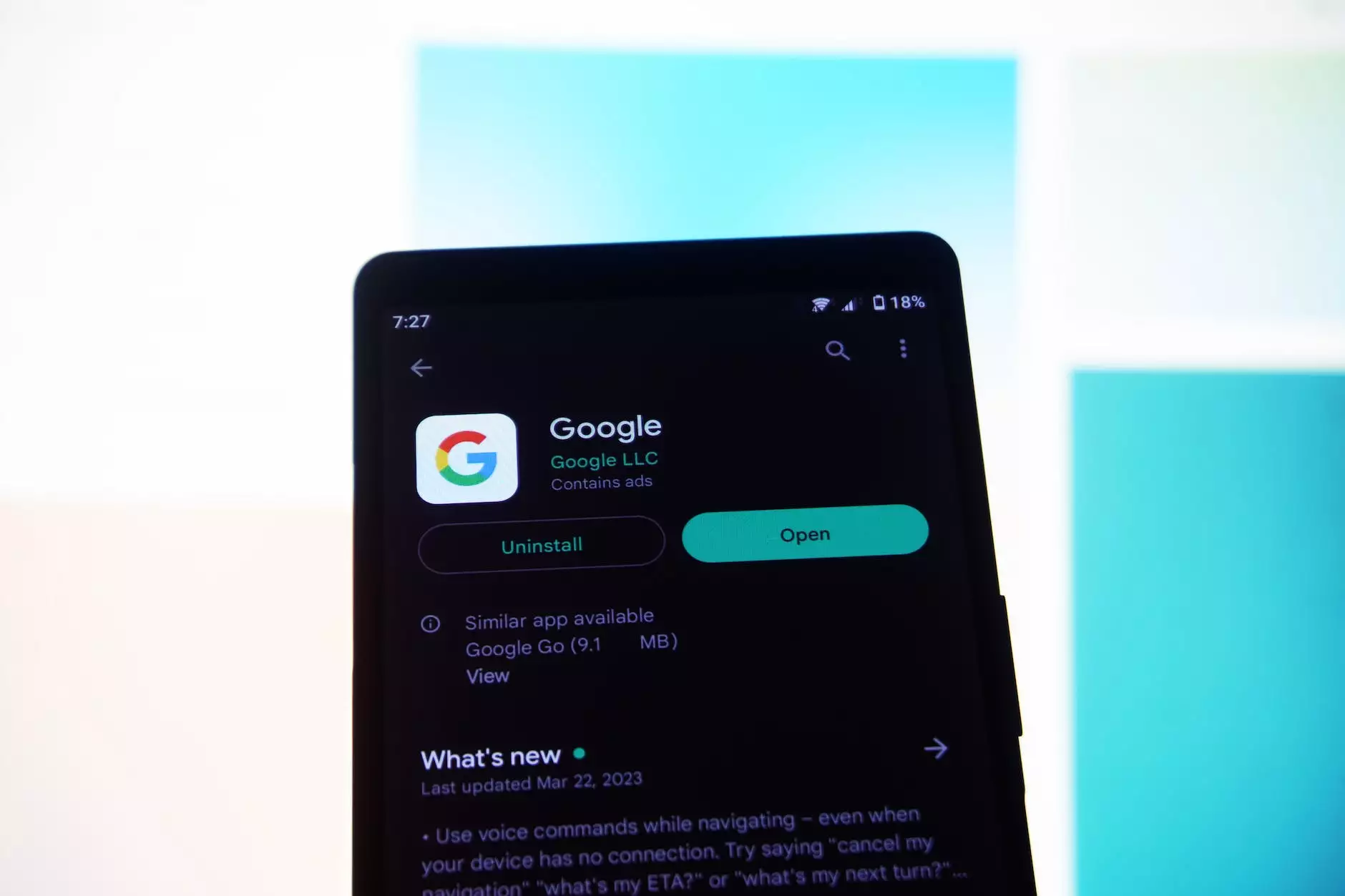11 Sure-Fire Ways to Get Banned From Google
Marketing
Welcome to OVYS Digital Presence and Web Design, your go-to source for expert website development and business and consumer services in the digital realm. In this comprehensive guide, we will explore the 11 sure-fire ways that can lead to your website being banned from Google. It is crucial to avoid these tactics to maintain a strong online presence and rank higher in search engine results.
1. Keyword Stuffing: A Risky Game
One of the most common mistakes made by website owners is keyword stuffing. While it may seem tempting, overloading your content with keywords can do more harm than good. Google's algorithm has become smarter over time, and it now focuses on delivering valuable and relevant content to users. Instead, focus on providing high-quality and informative content that naturally incorporates relevant keywords.
2. Purchasing Backlinks: A Shortcut to Disaster
Buying backlinks was once a popular tactic to quickly boost website rankings. However, Google now penalizes websites that engage in this practice. Building genuine, organic backlinks is the way to go. It requires time and effort, but it is a much safer and long-term strategy to increase your website's visibility and authority.
3. Duplicating Content: A Recipe for Disaster
Copying and pasting content from other websites can lead to severe consequences. Google's algorithm penalizes websites that duplicate content, as it devalues the user experience. Ensure that your content is original, engaging, and tailored to your target audience. Unique and valuable content has a higher chance of ranking well on Google.
4. Cloaking: A Sneaky Technique to Avoid
Cloaking is a technique that involves presenting different content to search engine crawlers compared to what visitors actually see. This deceptive practice is a sure-fire way to get banned from Google. Transparent and ethical practices are key to maintaining a good relationship with search engines and ensuring your website stays in good standing.
5. Hidden Text and Links: An Old Trick With Consequences
Stuffing keywords into hidden text or hiding links within your content may have been effective in the past, but it is now considered a black hat SEO technique. Google's algorithm is designed to identify and penalize websites employing such practices. Opt for clear and transparent content that provides a valuable user experience.
6. Low-Quality Guest Posting: Think Twice
Guest posting can be an effective way to build backlinks and expand your online presence. However, if done without careful consideration, it can lead to negative outcomes. Avoid low-quality guest posting on irrelevant websites or those with a poor reputation, as this can harm your website's credibility in the eyes of search engines.
7. Over-Optimization: A Recipe for Penalties
Over-optimizing your website can result in negative consequences. This includes excessive use of keywords, overusing header tags, and manipulating meta tags. It is essential to find the right balance between optimizing your content for search engines and providing a valuable experience for your visitors.
8. Spammy Link Building: A Hazardous Practice
Engaging in spammy link building practices, such as participating in link schemes or creating low-quality directory submissions, can lead to severe penalties from Google. Focus on building high-quality backlinks from reputable sources and prioritize quality over quantity.
9. Neglecting Mobile Optimization: A Missed Opportunity
In today's mobile-first era, neglecting mobile optimization can have significant consequences for your website's performance. Google prioritizes mobile-friendly websites in search results, so ensure your website is responsive and provides a seamless user experience across all devices.
10. Malware and Hacked Content: A Major Red Flag
Allowing your website to be infected with malware or hosting hacked content can lead to swift penalties from Google. Regularly monitor your website's security, use trusted plugins, and keep your software up to date to avoid compromising your visitors' safety.
11. Ignoring Google's Guidelines: A Costly Mistake
Finally, ignoring Google's guidelines and engaging in practices that aim to deceive or manipulate search engine rankings is a sure-fire way to get banned. Familiarize yourself with Google's Webmaster Guidelines and ensure that your website adheres to them to maintain a positive online presence.
OVYS Digital Presence and Web Design offers cutting-edge website development and business and consumer services for individuals and businesses alike. By avoiding these 11 sure-fire ways to get banned from Google, you can establish a strong online presence, increase your website's visibility, and reach your target audience effectively.










